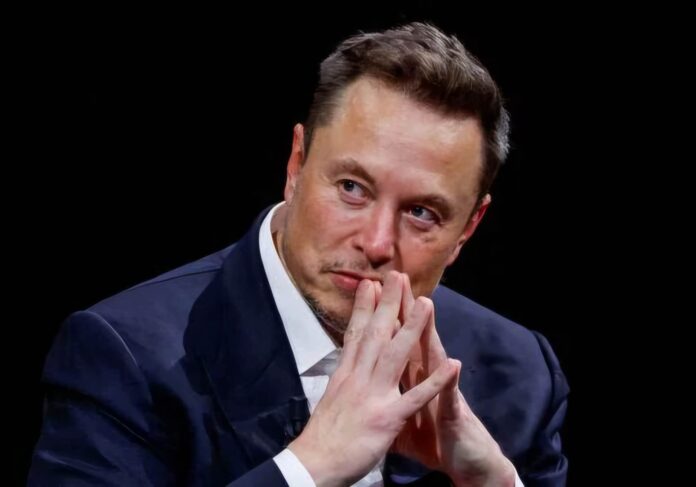In a surprising move, SpaceX, the parent company of Elon Musk’s Starlink satellite internet service, has formally withdrawn from the Independent Communications Authority of South Africa (ICASA) public hearings on the proposed licensing framework for satellite services. The decision has sparked widespread debate over South Africa’s regulatory policies and their impact on foreign investment.
The hearings, which began on Wednesday, February 5 (2025) in Pretoria, aimed to gather input from industry stakeholders on new licensing rules for satellite operators. SpaceX was scheduled to present its case at 11.30am –as recorded here by ICASA – but failed to appear. Later that evening, ICASA confirmed that SpaceX had formally withdrawn its participation, though its written submission remains on record.
It’s not clear why SpaceX decided to withdraw from the hearings – we’re yet to get an official comment from the American aerospace company CEO and founder of Tesla Motors, Elon Musk.
Why did SpaceX withdraw?
SpaceX’s withdrawal comes amid growing tension over South Africa’s Broad-Based Black Economic Empowerment (B-BBEE) policies, which require foreign companies to allocate 30% ownership to historically disadvantaged groups. In its written submission, SpaceX maintained that this requirement excludes foreign operators with direct-to-consumer business models, as their global policies prohibit local shareholding.
The company urged ICASA to align its regulations with the ICT sector code, which allows for equity-equivalent programs as an alternative to local ownership. “Many foreign satellite operators, particularly those with direct-to-consumer business models, have global policies that prevent local shareholding, thus excluding them from the South African market. This holds true even when these operators are willing to comply with B-BBEE requirements and invest in initiatives that directly benefit the target communities,” SpaceX said, referencing BBBE.
“By aligning the licensing and ownership regulations with the ICT sector code – which recognises equity equivalent programmes as an alternative to local shareholding – ICASA could remove a significant barrier to foreign satellite operators. This would not only increase foreign investment in South Africa but would also create broader industry benefits, supporting innovation, competition and long-term growth,” SpaceX further argued.
However, the withdrawal has drawn mixed reactions from industry bodies, with the Association for Communications and Technology (ACT) maintaining that updating satellite regulations solely to accommodate Starlink would be flawed and called for a more holistic approach to licensing reform.
On the other hand, key industry figures like South Africa’s Communications Minister, Solly Malatsi hold a different view. In October 2024, Malatsi urged ICASA to consider making exceptions in certain cases. He that reducing regulatory barriers could encourage investment in the country’s ICT sector, potentially driving economic growth and fostering innovation.
Broader political and industry implications
The controversy has escalated beyond regulatory discussions. Earlier this week, Elon Musk took to his social media platform, X, to criticise South Africa’s B-BBEE policies, calling them “openly racist.” His comments have reignited debates over the country’s efforts to redress historical inequalities through economic empowerment laws – through the recently signed Land Expropriation Act.
As we (NOWinSA) previously reported, Starlink’s expansion into South Africa could pose a national threat, particularly to local mobile network operators (MNOs). With its fleet of 7,000 low-earth-orbit satellites, Starlink promises to deliver high-speed internet connectivity, potentially disrupting the existing telecom landscape.
The issue has also drawn international attention. Newly appointed United States Secretary of State Marco Rubio announced his withdrawal from the upcoming G20 summit in South Africa, citing concerns over the country’s land reforms – as shown in the x post below – and its perceived anti-American stance.
Rubio’s sentiments comes days after US President Donald Trump threatened to cut aid to South Africa over the passing of land appropriation bill. In response to Trump’s threat, President Ramaphosa has declared that his country ‘will not be bullied’. This brave statement was made during his State of the Nation Address (SONA) on Thursday night, highlighting a diplomatic tension between the two nations.
What’s Next for Starlink in South Africa?
Despite withdrawing from the hearings, Starlink’s satellite internet service is already accessible in South Africa, though it lacks official approval. The company’s future in the country remains uncertain as ICASA continues its hearings until Friday, with various stakeholders, including satellite and mobile operators, set to present their views.
President Cyril Ramaphosa has sought to address the growing tensions, engaging Musk in discussions to clarify what his office termed “misinformation about South Africa,” particularly regarding land reform. However, with SpaceX stepping away from the licensing discussions, the path forward for Starlink remains unclear.
As the debate unfolds, South Africa faces a critical balancing act: fostering foreign investment while upholding its commitment to economic transformation. The outcome of ICASA’s hearings could set a precedent for how the country navigates these complex challenges in the years to come.
.

